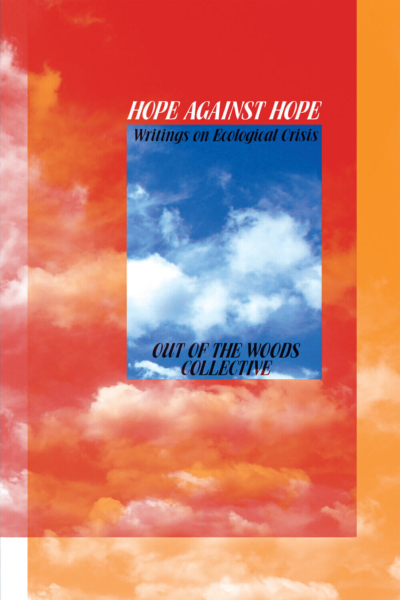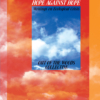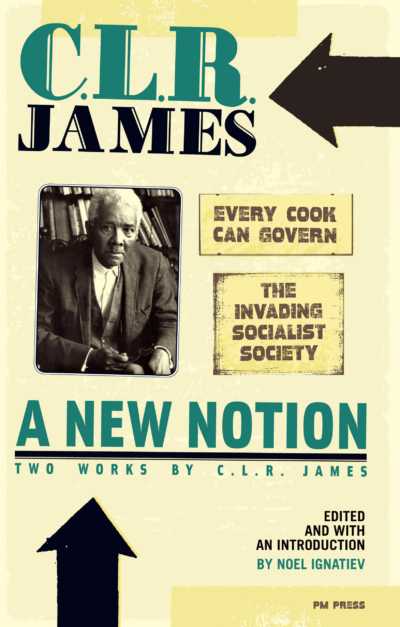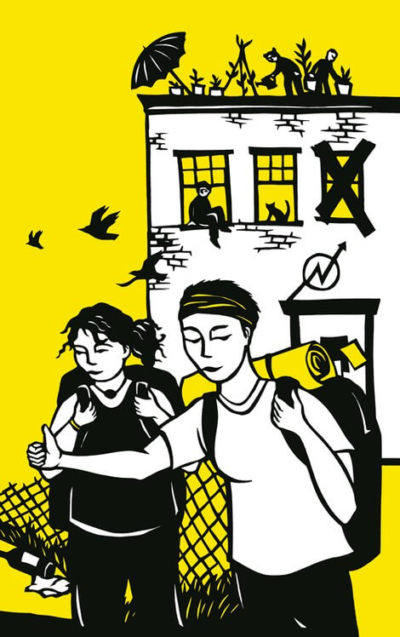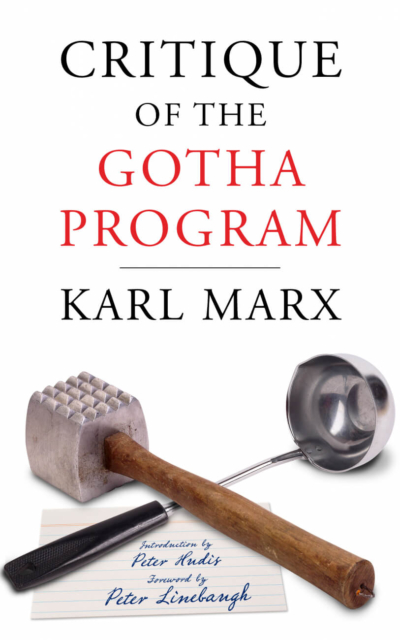We are told we are living in the middle of a climate crisis of unprecedented proportions. As doomsday scenarios mount, hope collapses. Even as more and more people around the planet experience climate disaster as immediate and urgent as ever, our imagination and programs for transformation lag. The disasters are already here, and the crises, longstanding, are ongoing.
In Hope Against Hope, the Out of the Woods collective investigates the critical relation between climate change and capitalism and calls for the expansion of our conceptual toolbox to organize within and against ecological crisis characterized by deepening inequality, rising far-right movements, and—relatedly—more frequent and devastating disasters. While much of environmentalist and leftist discourse in this political moment remain oriented toward horizons that repeat and renew racist, anti-migrant, nationalist, and capitalist assumptions, Out of the Woods charts a revolutionary course adequate to our times.
At the center of the renewed political orientation Hope Against Hope expounds is an abolitionist approach to border imperialism, reactionary ecology, and state violence that underpins many green solutions and modes of understanding nature. It reminds us of the frequent moments and movements of solidarity emerging in the ruins all around us. Their stunning conclusion to the disarray of politics in our seemingly end times is the urgency of creating what Out of the Woods calls “disaster communism”—the collective power to transform our future political horizons from the ruins and establish a climate future based in common life.
ProductDetails
Author: Out of the Woods Collective
Publisher: Common Notions
ISBN: 978-1-942173-20-5
Published: June 2020
Format: Paperback
Size: 6 by 9
Page count: 272 Pages
Subjects: Ecology / Current Events / Social Movements
About the author:
- Out of the Woods is a transnational political research and theory collective, a loose grouping of decolonial, small-c communist, antiracist queer-feminist thinkers working together to think through the problem of ecological crisis.
Out of the Woods began in 2014 as a collective investigation into the various historical, contemporary, and future relationships between capitalism and climate change. We are exhausted by the way in which hegemonic ecological politics in the so-called Global North oscillates between a return to a romantic naturalism with reactionary tendencies and a pragmatic green capitalism. We are also inspired by and seek to amplify real movements abolishing the present state of things: survivors of Hurricane Katrina, Indigenous water protectors opposing transnational pipelines, migrants fighting border imperialism, struggles for Black lives in Ferguson and safe water in Flint.
We recognize the need for a much wider lens on both the breadth of ecological crisis and the historical forms through which it perpetuates exploitation, dispossession, exhaustion, and maybe insurrection. Out of the Woods is evolving with the intention of further multiplying our positions against homogeneity. We invite you to contact us, and to think, write, and struggle with us. As disaster engulfs spaces and times around us, what will it take to get out of the woods, together?
Praise:
- “The global ecological crisis is not going to happen in some distant future, in 2050 or 2100 or when computer projections tell us the glaciers may have melted. It is happening now, all around us. And it builds on and intensifies long histories of extraction, exploitation, extinction, and genocide. How do we fight despair, nihilism, and an eco-fascist politics of the armed lifeboat in the face of this gathering but unequally experienced storm? In this collection of urgent essays, the Out of the Woods collective argues that hope emerges from the acts of solidarity in the face of crisis that they term ‘disaster communism.’ Surveying four key terrain of social struggle around the ecological crisis—borders, nature, futures, and strategies—Out of the Woods plot an environmental politics grounded in antiracist, decolonial, and anticapitalist movements and solidarities. There is no better guide to building a future of collective possibility out of the ruins of the present than Hope against Hope.” —Ashley Dawson, author of People’s Power: Reclaiming the Energy Commons and Extreme Cities and Extinction: A Radical History
- “This collection from Out of the Woods represents some of the most refreshing thinking on the politics of climate change and ecology. It is also the record of a collaborative project that arose from the dynamic conjunctures of radical theory and social movements, written for understanding and worldmaking rather than clicks or commerce. As climate change emerges as an undeniable fact demanding of solutions, Hope Against Hope is an important contribution to an honest examination of the interests, desires and futures which might be served by the range of answers offered across the political spectrum.” —Angela Mitropoulos, Contract & Contagion: From Biopolitics to Oikonomia
- “Hope Against Hope is an experimental book that shares important initiatives and dreams to work against the hell of current capitalist climate catastrophe and the worlds beyond that this hell will create. In doing so, it brings hope back from the future. It encourages and nourishes, through friendship and courage, a revolutionary present badly needed today. Oh, yes, Out of the Woods claims, a new world already exists and is set to abolish the present state of things!” —Gustavo Esteva, author of Grassroots Post-Modernism: Remaking the Soil of Cultures and The Future of Development: A Radical Manifesto and founder of the Universidad de la Tierra, Oaxaca
-
“Work, energy, and the planet’s ecology are all in crisis—apocalyptically, so. Survival seems impossible, hopeless, in fact. And, and, and. In the struggles against enclosures and borders, wasted natures and foreclosed futures, there are possibilities for going beyond capitalism, the state, and ecological crisis. To the array of competing strategies circulating throughout contemporary climate movements, Out of the Woods offers Hope Against Hope: Writings on Ecological Crisis toward the most revolutionary, interminable prospects of a hopeful future born of struggle.” —Kevin Van Meter, author of Guerrillas of Desire: Notes on Everyday Resistance and Organizing to Make a Revolution Possible and coeditor of Uses of a Whirlwind: Movement, Movements, and Contemporary Radical Currents in the United States
-
“Out of the Woods collective frontally attacks three major limitations in the strategies and tactics of dominant strands in today’s climate change movement: national paths to salvation that ultimately rely on and perpetuate oppressive border regimes and global inequalities; the widespread perception of the need to shrink rather than increase the forces of production; and, last but not least, undue optimism about so-called ‘stranded assets.’ Hope Against Hope is also a twenty-first century affirmation of Marx’s highly enigmatic conviction that ‘Mankind thus inevitably sets itself only such tasks as it is able to solve, since closer examination will always show that the problem itself arises only when the material conditions for its solution are already present or at least in the course of formation.’ Importantly, its approach is a non-sectarian, original, and thought-provoking attempt at grappling with, anticipating, and preparing for struggles to come.” —Kolya Abramsky, editor of Sparking a Worldwide Energy Revolution: Social Struggles in the Transition to a Post-petrol World
Read an extract below:
FROM THE BOOK
Like disaster, communist struggle is differentiated. Those undertaking it are more often than not already feeling the sharp end of ecological crisis: Indigenous peoples, migrants, racialized people, women, prisoners, “queers,” workers, the poor, and the disabled. Isolated, their struggles can appear reactive, as if they provide only temporary local reliefs. Capital is all too eager to offset the costs of its ecological crisis onto those who suffer from it, attempting to turn coterminous struggles into self-ingesting infighting. When viewed together, the acts of these groups appear the prime motor of social change. We know not yet what we might do, and this unknowable togetherness, we call communism.
It is this which makes us hopeful, which wards off that damaging and self-fulfilling despair. Hope is our word for the grave but positive emotion which collectively emerges within the disastrous present, pushes against it, and expands beyond it. With Ernst Bloch, we insist that this hope is not expectation, nor even optimism. Rather, it is always against itself; warding off its tendency to become a fetish, sundered from solidarity and struggle. This is hope against hope.
The importance of being together and becoming together is one we feel strongly about as a collective. Through the simple repetition of talking and writing online, Out of the Woods has become an important part of all our lives, with shared study evolving into real care and solidarity. It has been a wonderful thing to write together: typing over each other in sprawling online documents, not remembering or caring which parts any individual wrote, piecing together our knowledges on things we already knew, teasing out from each other things we didn’t know we knew, and collectively addressing those things we did not and do not yet know. As a collection of essays-thus-far written, this book is by no means the culmination of our thought but a series of snapshots of thought-in-gestation. Any kind of conclusive finality is impossible for us. As in the struggles we advocate, this process of becoming together can have no destination at which it settles once and for all. We frequently disagree with each other about what we wrote yesterday, about what we are writing today. This too prevents any sense of finality, as does the fact that, come tomorrow, we want to be writing with each other again. Our thinking together is not complete because it can’t be completed, and even if it could, we wouldn’t want it to end anyway.
Writing as a collective under a shared name solidifies this becoming together. Yet we recognize that it can also play an obfuscatory role, allowing us to escape accountability for our histories and positions, and eliding our relationships to those power structures which reproduce the ecological crisis. Out of the Woods started from a call circulated online in English, predominantly shared in a communist milieu concentrated in the UK. The founding members were all loose acquain- tances and largely affiliated with UK universities, whether as staff or students. At this point, we were all white and all men. This probably reflected the nature of the call—a (perhaps uninviting) invitation to do unpaid theoretical work, with all the imbrications of privilege that inherently involves. The original composition of the collective was reflected in the readership we appealed to: a certain left-theory audience was implicit in our writing. In the years since, new people have joined Out of the Woods—primarily through Twitter. Others have stepped back. The collective is now spread across the United Kingdom and the United States, and while it is no longer all men and certainly not heterosexual, we are still all white— and several of us settlers in North America. We are undoubtedly beneficiaries of the nexus of raciality, capital, and colonialism. We take responsibility for and fight against being determined by that inheritance. Several of us still work on the margins of universities, as tenuous students, temporary lecturers, and administrators. It is important to keep in mind these situated perspectives as you read this book—not to invalidate our thought but to better specify it. What has (not) been written undoubtedly reflects those who have (not) written it. With this book complete, Out of the Woods will transform yet again, with the intention of further multiplying our positions against homogeneity. We invite you to contact us, and to think, write, and struggle with us.
When we formed Out of the Woods, we wanted to intervene against the consistent inadequacy of many existing narratives around the ecological crisis. We profoundly disagreed with mainstream environmentalism’s call for a unified humanity that might stand against a yet-to-come cataclysmic event. Simultaneously, we were appalled by the ways this homogenous conception of humanity coexists with moralizing critiques blaming cataclysm on an excess of humanity. Through such a process, cataclysm becomes too easily pinned on “dirty” developing countries, with their “rapidly” reproducing populations, and their “floods” of migrants.
Oppositions between the polluted and the pure, the populating and the con- trolled, and the migrating and the placebound all ultimately depend on another organizational divide: between white “civilization” and racialized “disorder.” The concept of “nature” serves as an avatar for white anxiety, making manifest fears around the loss of purity and control. Such fears can supposedly be overcome only through the imperial orchestration of intergovernmental organizations—or, a descent into war. The ecological crisis, while supposedly undifferentiated in its effects on humanity, is overdetermined in its causes.
As antiauthoritarian communists and anarchists, we oppose these articulations of environmentalism. However, we also find similar reasons to oppose many of the conventional leftist responses to the ecological crisis. Green anarchism, for example, has too often been focused on defending localized purity of autonomous zones, which in our view constitutes a dangerously introverted response to a glob- ally differentiated disaster. In its romantic attempts to find a pure nature to defend or return to, green anarchism has orchestrated another set of violences. At times, an essentialist conception of nature has been expanded into gender, with some (most infamously Deep Green Resistance) articulating transphobic views. Other anarchists—especially in North America—have used primitivism as an excuse to imitate and appropriate Indigeneity. Shockingly, criticisms of such projects have been labelled as sectarian slurs and intra-anarchist scuffles, rather than substantive disagreements. Unlike the well-circulated 2009 anonymous anarchist text Desert or the reactionary Dark Mountain Project, we are uninterested in a project of “nature-loving anarchism,” nor do we countenance such works’ trendy poetic nihilism disguised as sober realism. “Nature” today emphasizes only a separate and fall- en world. It is no real shock that nostalgia for a now-spoilt nature is a frequent theme in reactionary thought, the “romantic anticapitalism” that Iyko Day properly names. Such a racial project, she argues, is premised on both the appropriation of Indigenous lands and practices by settlers and the exclusion of those deemed corrupted by capital—Asians, Jews, and migrants more generally. Against romantic anticapitalism, then, we draw inspiration from Black, Indigenous, and anti-border anarchists and communists, for whom romantic anticapitalism can only reek of white supremacy.
This book reflects our desire to write something useful, to create something that makes it easier to understand the total interdependence of the extractions, exploitations, enslavements, and extirpations that colonial capital has brought upon this world. The brutal techniques of these myriad forms of ruination are too often reproduced in green aesthetics, politics, and practices. The logics of reactionary ecology, border imperialism, and racialized state violence are perpetuated and proliferated in environmentalism. Such a situation demands a different and differentiated response. We see such a response in inchoate tendencies all around us. This book is about the countless ways people survive amidst and against the ruins. We believe these shared strategies to survive ecological crises make a collective thriving within and beyond ruination possible. Thus, in the service of something that truly changes everything—which is to say planetary revolutions—we offer new concepts to hold together, and hold close, amidst the continuation of the crisis. Against gleeful doomsaying, romantic anticapitalism, and hopeful technofixes:
We hope-against-hope
for a careful, yet fierce, queer cyborg ecology
built through a bricolage of tools, techniques, and knowledges already around us
to move within, against, and beyond the ecological crisis
for survival pending revolution
to make, altogether, disaster communism.

